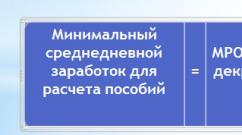Indirect speech in French. Indirect speech French language converting direct speech into indirect speech
Indirect speech is a complex sentence in which the subordinate clause reproduces direct speech, and most importantly includes a speaking verb.
Types of sentences in indirect speech:
1. Les phrases déclaratives (affirmative sentences)
Pierre dit à Marie: “Je te prête mes clés.” →Pierre dit à Marie qu‘il lui prête ses clés. Pierre says to Marie: “I’ll give you my keys.” - Pierre tells Marie that he will give her his keys.
2. Les phrases impératives (imperative sentences)
The verb in the imperative mood from direct speech in such phrases is transformed into indefinite form, preceded by a preposition de. If the verb is in the negative form, then both negative particles (ne pas) are placed before the infinitive after the preposition de:
La mere dità son enfant:"Dis-moila vérité!” →La mère dit à son enfant de lui dire la verité. - A mother says to her child, “Tell me the truth!” - A mother tells her child to tell the truth.
3. Les phrases interrogatives (indirect question)
The question from direct speech is transformed into indirect:
Lucie: “Quelle heure est-il?” → Lucie demande quelle heure il est. Lucy: "What time is it?" - Lucy asks what time it is?
In an indirect question, direct word order is observed, i.e. the subject precedes the predicate.
In an indirect question interrogative pronouns, interrogative adjectives and adverbs remain the same as in direct speech, with the following exceptions:
Direct speech | Indirect speech | |
| Qui est-ce qui (who) | qui | Qui est-ce qui crie? – Je veux savoir qui crie. Who's screaming? - I want to know who is screaming. |
Qui est-ce que (whom) | Qui est-ce que tu vois? – Je veux savoir qui tu vois. Who do you see? - I want to know who you see. | |
Qu'est-ce qui (what) | Qu'est-ce qui te fait plaisir? - Je veux savoir ce qui te fait plaisir. – What gives you pleasure? “I want to know what gives you pleasure.” | |
Qu'est-ce que (what) | Qu'est-ce que tu fais? – Je veux savoir ce que tu fais. - What are you doing? – I want to know what you are doing. | |
| Que fais-tu? – Je veux savoir ce que tu fais. - What are you doing? – I want to know what you are doing. | ||
| Est-ce que tu viens? - Je veux savoir si tu viens. - Will you come? - I want to know if you will come. | ||
General question without question words | Viens-tu? - Je veux savoir si tu viens. - Will you come? - I want to know if you will come. |
When translating sentences from direct speech to indirect speech, you must remember 3 rules:
1. In some cases, the person of pronouns and adjectives changes!
For example, “I” to “he”, “my” to “his”, etc.
2. Indirect speech is characterized by a change in tenses in the subordinate clause (agreement of tenses) if the verb of the main clause is in the past tense!
Time conversion table
| Direct speech | Indirect speech |
| present | imparfait |
| imparfait | imparfait |
| passé composition | plus-que-parfait |
| plus-que-parfait | plus-que-parfait |
| future simple | futur dans le passé |
| future antherieur | futur antherieur dans le passé |
| conditionnel present | conditionnel present |
| conditionnel passé | conditionnel passé |
| subjonctif present | subjonctif present |
3. Temporary and local indicators change when translating direct speech into indirect speech!
| Changes when translated into indirect speech | ||
| aujourd'hui | ce jour-là | today - on this day |
| hier | la veille | yesterday - the day before |
| avant-hier | l'avant-veille | the day before yesterday – two days ago |
| demain | le lendemain | tomorrow - the next day |
| après-demain | le surlendemain | the day after tomorrow - in two days |
| lundi prochain | le lundi suivant | next Monday |
| cette semaine | cette semaine-là | this week - that week |
| la semaine (l'année) derniere | la semaine (l'année) précédente (d'avant) | last week (last year) |
| le mois dernier | le mois précédent (d'avant) | last month |
| la semaine (l'année) prochaine | la semaine (l'année) suivante (d'après) | next week (next year) |
| le mois prochain | le mois suivant (d'après) | next month |
| maintenant | à ce moment | now - at that moment |
| il y a 5 ans | 5 ans plus tot | 5 years ago |
| dans deux jours (ans) | deux jours (ans) plus tard | in two days |
| autrefois, jadis | auparavant | earlier |
| jusqu'ici | jusque là | so far - until then |
| dernièrement, récemment | peu avant | recently |
| prochainement, sous peu | peu après, quelques temps après | soon |
Speaking verbs:
¤ - verbs 3 gr.
| Admettre¤ | admit |
| affirmer | approve |
| ajouter | add add |
| declarator | announce |
| dire¤ | say |
| dire ¤ à qn | tell smb. |
| explainer | explain |
| insister | insist |
| mentionner | mention deny |
| promettre ¤ | promise |
| proposer | suggest tell |
| reconnaître ¤ | confess |
| remarker | notice |
| répondre ¤ | answer |
| s'exclamer | exclaim |
| signaler | warn |
| suggérer | encourage, suggest |
Subject : Allô, Suisse !
Goals :
Educational:
Cultivating students' sustainable interest in the French language
2. Educational:
Development of linguistic competence (repetition of the rules of useDiscourseindirect)
3. Developmental:
Development of voluntary attention
Development RAM
Development of linguistic conjecture
Development of logical thinking
4. Practical:
Speaking training
Listening training
Reading training
Teaching writing
Tasks:
Formation of grammatical skills (useDiscourseindirect)
Formation of lexical skill (use of nouns denoting objects)
Formation of lexical skill (use of verbs denoting actions)
Formation of reading technique:
*formation of prosodic skill (use of prosodic means in speech)
Formation of writing technique:
* formation of spelling skills (use of nouns denoting objects)
* formation of spelling skills (use of verbs denoting actions)
Lexical material:
Namesnouns, denoting objects and phenomena of the surrounding world:commissaire( m) ,médecin (m), docteur (m), professeur (m)
Verbs, denotingactions: demander, répondre, dire, savoir, conseiler
Grammaticalmaterial: Le discourse indirect
Equipment:
Non-technical teaching aids
Textbook for 6th grade for general education institutions "L’ oiseaubleu» N.A.Selivanova, A.Yu. Shashurina, M.: Education, 2008.
Videogram (chalkboard)
Illustrative clarity (conversion tableDiscoursedirectendiscourseindirect)
Lesson Plan
Organizational moment (1 minute)
Student report (1 minute)
Start of the lesson
Main part
2.1. Stage of repetition of the rules of useDiscourseindirect(7 minutes)
III . Final part
Lesson progress
Start of the lesson
Organizational moment
Levez-vous! Bonjour, les éleves. Je suis trè s contante de vous voir. Asseyez-vous!
1.2. Reportstudent:
Qui est responsiable de classe aujourd'hui?Quelle date sommes-nous aujourd'hui? Qui est absent? Merci.
Main part
Stage of repetition of the rules of useDiscourseindirect(7 minutes)
- EtmaintenantnousallonsrepeaterDiscourseindirect: How do we convey a statement, question, request and order?
Statement: dire (crier, répondre, écrire, savoir)que…
Question: demander si
Request, order: dire (demander, conseiller) de + imfinitif
2.2. Stage of formation of grammatical speaking skills (15 minutes)
Maintenant nous allons faire quelques exercises:
Transformer le discourse direct en discourse indirect:
1. Hier nous sommes alles chez Mme Moncien et nous lui avons parle de son fils, dit le commissaire.
2. Demain j'irai chez le medecin pour lui demander conseil, dit Leon a son frère.
3. J'ai lu hier votre annonce dans le journal, dit Marcel.
4. Lucie dit: Aujourd'hui, samedi, il ne travaille pas, mais il n'a pas voulu rester pres de moi.
5. Le maitre dit aux eleves: Prenoncez bien ce mot.
6. On nous a crie: Mettez-vous au travail.
7. Elle a dit a Jacques: Ne me relephine plus!
8. Le professeur nous a dit: Suivez le cours de literature francaise!
9. La mere crie a sa fille: N’oiblie pas d’acheter un kilo de sucre!
10. Prenez vous les repas a la maison ou bien a la cantine?
11. Est-ce que le docteur lui a interdit de quitter la chamber?
12. Avez-vous faim?
13. Est-ce que ces etudiants ont manqué le cours d’histoire?
14. Vous ennuyez-vous quand vous restez seul?
15. Est-ce que son fils va abandoner ses etudes a l’universite?
2.3. Stage of formation of grammatical writing skills (15 minutes)
Convey direct statements with indirect speech. Be aware of changing the personal form of verbs, pronouns and possessive adjectives:
1. Paul dit: Je suis le premier en Histoire.
2. Helene dit: Mes parents viennent d’acheter une,aison de campagne.
3. Le professeur dit a Jean: Tu as bien ecrit cet exercise.
4. Irene et Sophie dissent: Nous n'aimons pas du tout les films policies.
5. La maitresse dit auz eleves: Voes etes en retard.
Convert direct requests and commands to indirect ones:
1. Le guide nous a demande: Descendez de l’autobus le plus vite possible, s.v.p.
2. Le professeur a dit: N’ecrivez pas sur le livre!
3. Nos parents nous dissent: Passez vos exemens d’abord.
4. Maman demande a sa fille: Reviens avant sept heures du soir.
3. Convert direct questions to indirect questions:
1. Mon copain me demande: Est-ce que ton petit frère marche déjà?
2. Je demande a mes copains: Allez-vous ecoiter ces cassettes?
3. Pierre nous demande: Est-ce que vous conaissez la vie de Jeanne d’Arc?
III . Final part
3.1. Homework(2 minutes)
Ecrivez le devoir: Vous devez fair l’exercice 2 à la page 215.
Lesson Analysis
The objectives of the lesson were sufficiently completed. It took a little more time to repeat the material than planned, but this did not interfere with the achievement of the lesson goals, since the students were quite attentive and active.
A set of additional exercises on the grammar of French as a second foreign language on the topic “Indirect speech” for 7th grade students
Having analyzed educational and methodological complexes for French as a second foreign language, recommended by the Ministry of Education Russian Federation, we came to the conclusion that the textbooks do not contain a sufficient number of exercises that are necessary for the formation of grammatical knowledge, skills and abilities on the topic “Indirect speech”. In this regard, we decided to expand the scope of grammatical exercises on this topic by compiling a set of additional exercises on the grammar of French as a second foreign language on the topic “Indirect Speech” for 7th grade students.
The exercises were distributed according to the number of lessons allocated for the formative stage of experimental work. A total of five lessons were allocated for the formative stage. The study of grammatical material did not take up the entire lesson, but only part of the lesson. In the future, these exercises can be used either in full or in part, at the discretion of the teacher. Since this grammatical phenomenon was introduced by the teacher a lesson earlier, and primary training was partially carried out, we decided to begin our set of additional exercises by continuing to work on primary consolidation.
First lesson. Training exercises (conscious choice exercise, substitution exercise, transformation exercise) + Exercise using visual support.
Exercise V conscious choice . Choisissez la bonne réponse pour mettre les phrases au discours indirect.
Elle a dit: “Je suis allée á l’opéra hier.” → Elle a dit que la veille elle… á l’opéra.
était allé
est allé
irait
allait
Il répond: “Je veux rester en ville.” → Il répond qu’il…rester en ville.
Avait Voulu
voulu
veut
voulait
Elle a répondu: “Je comprends bien l’espagnol.” → Elle a répondu qu’elle… bien l’espagnol.
comprend
comprenne
comprenait
comprendrait
Il a dit: “Hier, nous sommes allés au cinéma.” → Il a dit qu la veille ils…au cinéma.
étaient allés
sont allés
allaient
iraient
Elle lui dit: “J’aime la glace.” → Elle lui dit qu’elle… la glace.
aim
aimit
avais aimé
aimé
Substitution exercise.
Il dit: “C’est vrai.” → Il dit que c’… vrai.(être)
Il affirme: “Il pleuvait.” → Il affirme qu’il… .(pleuvoir)
Il crie: “J’ai perdu mes clés.” → Il crie qu’il… ses clés.(perdre)
Il affirment: “Nous sommes allés en Chine, l’été dernier.” → Ils affirment qu’ils… en Chine, l’été dernier.(aller)
Il a dit: “Je suis malade.” → Il a dit qu’il… malade.(être)
Exercise on transformation . Transformez les dialogues au discourses indirect.
Elisabeth: Bonjour, moi c’est Elisabeth..
Mark: Tu es nouvelle ici?
Elisabeth: Oui, je suis dans cette école depuis lundi.
Mark: Alors? What's the comment?
Elisabeth: J'aime bien! Les professeurs sont sympa. Et, il y a beaucoup d'activités.
Mark: Tu es dans une famille d’accueil?
Elisabeth: Oui, ma famille d'accueil est très sympa. Leur maison n'est pas loin de l'école. Excuse-moi, mon courses commence dans cinq minutes.
Mark: Ok, à bientôt!
Elisabeth: Oui, à bientôt.
Exercise using visual support. Faites les propositions au discours indirect en utilisant la construction “Il/elle m’a dit que...”
Second lesson. Repetition exercise (with cards), transformation exercise + L'histoire en photos.
Repetition exercise (with cards).
Students are divided into two groups. The teacher prepares cards in advance on which, on one side, a sentence is written in direct speech, and on the other side the same sentence, but in indirect speech. Students are required to pull out a card and, without looking, correctly pronounce what is written on the back. If the student completes the task, the team receives a point. The game continues until each student draws a card. Then the points are calculated.
Exercise on transformation . Transposez le compte rendu d'interview ci-dessous au discours direct pour retrouver les paroles de l'actrice.
L ’ histoire en photos . It is necessary to compose a dialogue for the photograph using these cues, and then retell it in indirect speech.
Bonjour. Es-tu la nouvelle ici aussi?
Paris est bien, mais je n"aime pas cette école autant que ma dernière.
Oui, je chante le jazz.
J'étudie l'allemand et l"espagnol aussi.
C"est mieux que mon école dans les États.
Tu joues de la guitare! Est-ce que tu chantes aussi?
Oui. Je m'appelle Ivette. Je viens des États-Unis. Ma famille va habiter à Paris pour les deux ans prochains.
Qu'est-ce que tu pense à Paris alors?
J'espère que nous sommes dans la même classe. Tu peux m'aider. Je reçois toujours de mauvaises marques. Mes parents croient que c"est parce que je passe trop de temps sur ma musique.
C"est la ville la plus excitante!
Third lesson. Constructive exercise + Qui a dit ç a ? + Les boules de neige.
Constructive exercise. Students need to create their own sentences using the given beginning and ending sentences.
Jean m'a dit _______________________________________ à la montagne.
Elle a demandé ________________________________________ trop vite.
Mireille a promis __________________________________ le lendemain.
Hier, le professeur nous a dit _____________________________ par coeur.
Il raconte __________________________________________ depuis hier.
Il dit _______________________________ _________________ content.
Je lui dis _____________________________________________________ ce livre.
Qui a dit ç a ?
Students are given several quotes in one column, and several famous names in a second column. Students are required to make assumptions about who these words belong to, using indirect speech.
Les boules de neige orgameVsnowballs.
Fourth lesson. Mika – Elle me dit ) + Faites l ’ histoire .
Students are required to write down on a piece of paper what they like to do most and sign it. Then students make a ball out of their sheets of paper, an impromptu “snowball”. While cheerful music is playing, students play snowballs. When the music stops, each student should have a snowball in their hands, then each of them is required to say what the person whose snowball is in his hands likes to do most. When completing this task, students use indirect speech.
Work on listening (Song: Mika – Elle me dit ).
Elle me dit
______________________
T "auras de quoi être fier
_________________________Elle me dit
_________________________
_________________________
Dis moi ______________
Elle me dit
______________ l"air coiffé
______________________
_______________________
Elle me ditElle me dit, _____________, tant pis
Un jour tu comprendras
Un jour tu t"en voudrasElle me dit, __________
_____________________
Tu fais n "import quoi
On dirait que t"aimes çaPourquoi tu gâches ta vie (3 X )
Danse danse danse, elle me ditPourquoi tu gâches ta vie (3 X )
Danse danse danseTu deviendras milliardaire
Ne t "enfermes pas dans ta chambre
c"est ta vie fais c"que tu veux
Ne finis pas comme ton père
Sors un peu de ta bulle
c"est quoi ton problem
t"es trop nul
Vas-y secoue-toi et danse
Qu"est-ce que t"as pas
Écris une chanson contente
Tu finiras comme ton frère
T"es defoncé ou t"es gai
After filling in the blanks, you can listen to the song again and sing it together.
Faites l ’ histoire .
Fifth lesson. Working with a video fragment (Movie: Le Petit Nicholas ) + Football
Students are divided into two groups. Each group receives a sheet of paper containing only the beginning of sentences in indirect speech. The students' task is to complete each sentence. Students in a chain complete one sentence at a time, without consulting with other students. Then two participants are selected from each team, who are required to act out in dialogue what is written on pieces of paper by the whole group. The group whose dialogue is more logical wins.
Lesamisontrencontré à ___________________________________________
………………………………………………………………………………………………………..………………….…Michel a dit à Colette que___________________________________________
………………………………………………………………………..………………………………….…………………Elle a répondu que ________________________________________________
……………………………………………………….…………………………………………..…………………………Il lui a demandé pourqoi elle _______________________________________
……………………………………………………………….……………………………………………………..………Elle a répondu qu’elle _________________________________________________
…………………………………………………..……………………………………………………………….…………Il a demandé quand elle _________________________________________________
Elle a répondu qu’elle _____________________________________________
…………………………………………………….………………………………………………………………..………Il a dit que _____________________________________________________
………………………………………………………………………………………………………………………………Working with a video fragment (Film: Le Petit Nicholas ).
Students are asked to watch an excerpt from the film “Little Nicolas” and complete several tasks.
Watch an excerpt from the film and tell who these lines belong to.
Doctor #2
Clotaire
Doctor #3
Geoffroy
() Je vais te montrer des images et je veux que tu me dis à quoi ça fait tu penser. Tu es prêt? Qu'est-se que tu vois?
() La voiture de mon père. La bateau de mon père. L'avion de mon père.
() Je sais pas.J'ai pas révisé.
() C "est injuste, c" est pas moiqui ai fait ces taches.
()Enleve tes lunettes et lis.Retireteslunettes !
Rewrite these sentences in indirect speech.
Football
This game will help you consolidate the material covered on the topic “Indirect Speech.” The teacher is required to prepare cards with remarks or quotes in direct speech, as well as a playing field in the form of a football field with goals and players. The field can be located either on a horizontal surface or on a vertical one (in this case, a magnet can be used instead of a ball). Students are divided into two teams. Then team members take turns taking a card and reading the sentence as it sounds in indirect speech. If the student answers correctly, the ball moves one step closer to the opponent’s goal. As soon as one team scores a goal, the ball is returned to the center of the field and the game starts again. This game can take up either the entire lesson or part of the lesson. The game will be more dynamic if you divide the playing time into halves.
Ecoutez la chanson et faites l’exercice.
Students listen to the song and begin completing assignments.
(Fill in the blanks with a suitable cue while listening to the song).
Elle me dit_______________________
Pas une chanson déprimante
Une chanson que tout le monde aime
In both Russian and French, the same phrase can be introduced into speech directly or indirectly.
Nathalie dit: “Il neige.” – Natalya says: “It’s snowing.”
The phrase “it’s snowing” is said on behalf of Natalya, that is directly.
Nathalie dit qu "il neige. – Natalya says, What It's snowing.
This time the phrase “it’s snowing” is introduced using the word “what,” that is, not directly, but indirect way.
Le professeur dit que vous travaillez bien. – The teacher says What you are doing a good job.
It is important to remember that:
word order after que (what) always straight(first “who?”, and then “what is doing?”),
and also in meaning words need to be replaced, indicating ownership (mine, yours, ours, etc.) and who performs the action:
Elle dit: “Je cherche mon sac.” – She speaks: " I looking for mine bag."
Elle dit qu"elle cherche son sac. – She says that she looking for her bag.
Several rules for entering question phrases
Direct speech - indirect speech
Que – ce que
Qu"est-ce que
Elle me demande: “Qu"est-ce que tu lis?” – She asks me: “ What are you reading?
Elle me demande ce que je lis. – She asks me What I'm reading.
Qu"est-ce qui – ce qui
Elle me demande: “Qu"est-ce qui te plaît?” “She asks me: “What do you like?”
Elle me demande ce qui me plaît. “She asks me what I like.”
Est-ce que… – si
Elle me demande: “Est-ce que tu es fatigué?” – She asks me: “ You tired?"
Elle me demande si je suis fatigué. – She asks me if I'm tired whether I.
The remaining question words are entered unchanged:
Elle me demande: “Quand tu veux partir?” – She asks me: “ When do you want to leave?
Elle me demande quand je veux partir. – She asks me When I want to leave.
Order or request in indirect speech it is introduced using pretext de and verb in initial form:
Elle dit: “Regardez ce film!” – She says: “Watch this movie!”
Elle dit de regarder ce film. – She says watch this movie.
Elle dit: “Ne regardez pas ce film!” – She says: "Don't watch this movie!"
Elle dit de ne pas regarder ce film. – She says Not watch this movie.
Please note that if necessary deny initial form of the verb (infinitive), then both negative particles(both ne and pas) stand before verb.
So far we have looked at examples where phrases began with words like “she speaks- elle dit", " He asks – il demande”, in which verbs are worth in the present real time.
How to construct indirect speech (retelling) if these verbs stand in the past time. For example:
present time
Il a dit: “Je suis malade." – He said: “I (am) sick.”
Il a dit qu"il était malade. – He said, What he (is) sick.
“Direct speech” in the present tense is indirect speech in Imparfait.
past tense
Il a dit: “Je suis tombé malade.” – He said: “I’m sick.”
Il a dit qu"il était tombé malade. – He said that he was sick (both actions are in the past, but got sick earlier).
Therefore, the past “fell ill” in already indirect speech (in retelling) will be expressed using the form Plus-que-parfait.
future
Il a dit: “Je partirai demain.” – He said: “I’ll leave tomorrow.”
Il a dit qu"il partirait le lendemain. – He said that he will leave Tomorrow.
The future tense in the retelling (in indirect speech) will be constructed using the conditional mood Conditionnel présent.
And one more nuance :)
Please note that in the last two examples, in the case of direct and indirect speech, when agreeing on tenses, two different words, which are translated into Russian the same. These are the words “tomorrow”.
A phenomenon that has no analogue in the Russian language.
The following words are translated differently:
If you need explanations of this grammar topic in voice, as well as an additional set of exercises, you can find it in our audio course
Direct and indirect speech are ways of reproducing and transmitting statements.
Direct speech reproduces the words of the speaker without changes, usually accompanied by the words of the author:
Je suis ton ami, dit-il. “I am your friend,” he said.
Indirect speech conveys the content of another person's statement. The transformation of direct speech into indirect speech results in a complex sentence, which is connected to the main conjunction que what. The author's words become the main sentence. Depending on the content, changes in the forms of personal pronouns and possessive adjectives also occur. When using indirect speech, you must adhere to general rules coordination of times.
Il me dit: “J"ai vu ta soeur.” He tells me: “I saw your
Il me dit qu"il a vu ma soeur. He tells me that he saw my
Il m"a dit: "Tu n"as pas compris He told me: "You didn't understand this
cette regle.” rules". Il m"a dit que je n"avais pas compris He told me that I did not understand cette regle. this rule.
When reproducing incentive sentences in indirect speech, the imperative mood of the verb of direct speech is replaced by an infinitive or a verb in the form of the subjunctive mood:
Nous lui avons crie: “Attends-nous!” We shouted to him: “Wait for us!” Nous lui avons crie a nous attendre We shouted to him to get us
waited.
Interrogative sentences reproduced in indirect speech are called indirect questions. The word order in these sentences is straight. The use of tenses follows the general rules for coordinating tenses. When converting interrogative sentences into indirect speech, you must adhere to the following rules:
1) the general question is replaced by a subordinate clause, which is connected to the main one using the conjunction si or whether.
Il m"a demande: “Pars-tu ce soir?” He asked me: "Are you leaving?
tonight? ".
Il m"a demande si je partais ce soir-lä He asked me if I was leaving
tonight.
2) when transforming special questions into indirect speech, interrogative words (pronouns, participles) become allied words:
Il lui a demande: “Qui a dit cela?” He asked him: “Who is this
Il lui a demande qui avait dit cela He asked him who said it
Elle lui a demande: “Quand pars-tu?” She asked her: “When did you
are you leaving?"
Elle lui a demande quand elle partait She asked her when she
3) if a direct question begins with an interrogative pronoun que, interrogative phrases qu"est-ce que; qu"est-ce qui, then the clauses ce que are used in the subordinate clause; ce qui.
Il m"a demande: “Que fais-tu?” He asked me: “What are you
“Qu"est-ce que tu fais?” are you doing?
Il m"a demande, ce que je faisais He asked me what I was doing
Il m"a demande: "Qu"est-ce qui est He asked me: "Who
arrive?" have you arrived?" Il m"a demande ce qui etait arrive He asked me who had arrived.
4) inversion in a subordinate clause is possible if the subject is expressed by a noun.
Lucie a demande: “Que lit Pierre?” Lucy asked: "What is he reading?
Lucie a demande ce que lisait Pierre Lucie asked (about) what
Pierre is reading.













